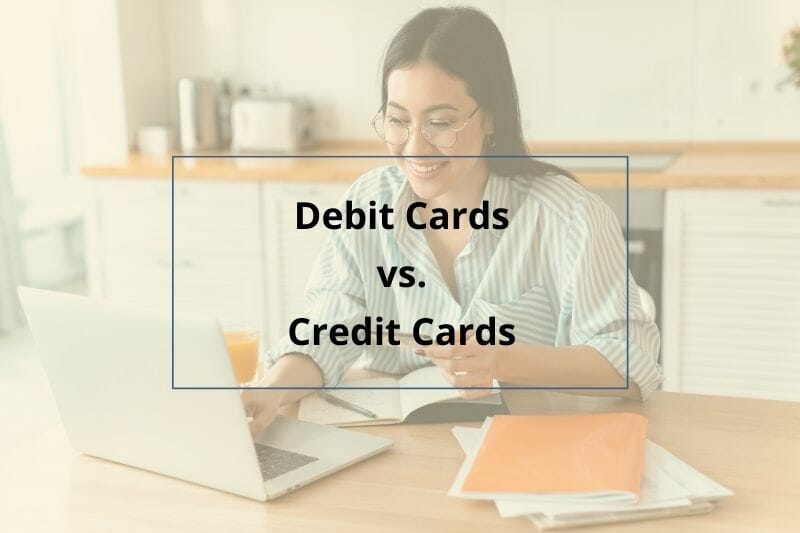Should I use a Debit Card or a Credit Card?
Most of us carry at least two pieces of plastic to pay for things – a debit card and a credit card. But what’s the difference between the two?
In this article we talk about:
- What is the difference between a credit and debit card
- Which one is better?
- Debit cards
- Credit cards
- Which one you should use.
So what’s the difference?
To begin with, think of it this way: With a credit card, you’re borrowing someone else’s money to make a purchase, but you’ll have to pay it back. With a debit card you’re pulling money directly from your own bank account. It’s the difference between taking out a short-term loan or spending only what you have.
So which one is better?
Let’s just say, ‘it depends.’
Debit Cards
Using a debit card is like writing a check. You’re spending money from your account for goods or services. If you don’t have enough money in your account, the debit will be turned down. If you do, money is deducted from your account almost in real time. Debit cards can also be used at ATMs or to get cash back at places like grocery stores. These cards can be great to help keep you from spending more money than you actually have and they can be great for in-store purchases.
Learn more about your Cornerstone Bank debit card and it’s features by visiting the Debit Card Page.
Debit Card Tip: Carrying a debit card is safer than carrying cash. If you need cash you can always use your debit card at an ATM to make a withdrawal.
Credit Cards
Credit cards can be perfect for large purchases because you’re borrowing someone else’s money for a short period of time. They also come with some liability protections and benefits that most debit cards don’t have. These benefits might range from cash back, to points for airline miles or lodging. Benefits can also include extended warranties or rental car insurance. Because of these protections, using a credit card for rentals or online purchases can be safer than using a debit card.
While both card types offer ways to dispute a purchase, your credit card issuer is trying to get its money back from a merchant. With a debit card dispute the money that came from your account is gone and unavailable for use until the dispute is resolved.
That doesn’t mean credit cards don’t come with drawbacks. If you have trouble controlling your spending or paying your account bill on time, it can be costly. That’s because interest is charged on bills that aren’t paid in full by the end of each billing period. You could also face a late fee. The longer you take to pay off the bill, the more you’ll pay in interest charges.
It’s also quite possible that credit cards that offer rewards will charge you an annual fee, whereas debit cards often come free with an account at your financial institution.
Learn more about our Cornerstone Bank Credit Cards and find the right fit for you by visiting our Credit Cards Page. Or to apply click here.
Credit Card Tip: When used responsibly, credit cards are a great tool to help you build your credit score.
So which one should you use?
While credit cards generally come with more protections, you’ll want to make sure you pay them off as fast a possible to avoid paying interest charges. Responsible use of a credit card can also help build your credit score.
Debit cards, on the other hand, can be great for in-store purchases and are good for people who want to limit spending to only what is in their account.
Either way, experts recommend that you always monitor your accounts online and to report any discrepancies immediately. You should report a lost or stolen card immediately.
No matter what card you use, be sure to take the time to read about your protections and rights as a cardholder.
To find the right product and learn more about the different types of cards visit with one of our bankers today!


